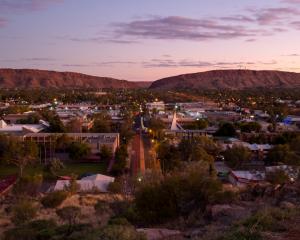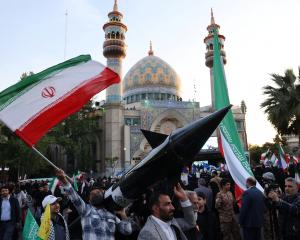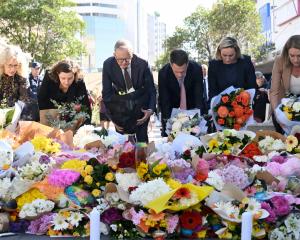The moves are part of a high-stakes showdown following four days of protests in the capital of the nuclear-armed nation led by former international cricketer Khan and cleric Tahir ul-Qadri, who controls a network of Islamic schools and charities.
The government has said Khan and Qadri are free to demonstrate peacefully but will not be permitted to enter Islamabad's Red Zone, which is home to many Western embassies, the Supreme Court and government ministries.
Khan accuses Prime Minister Nawaz Sharif of rigging last year's election that he won by a landslide. Qadri says Sharif is corrupt. Both have rejected negotiations offered by the government.
Many Pakistani analysts believe Khan and Qadri mounted their parallel protest campaigns because they sensed Sharif's fraught relationship with his generals had nosedived in recent months.
Any attempt by protesters to force their way into the Red Zone could lead to a violent confrontation.
The area has been sealed off with shipping containers and barbed wire, and is guarded by thousands of riot police, the army and the paramilitary Rangers. Khan has appealed to police not to oppose the march.
"I will lead you and you will follow me," he told thousands of supporters at a rally on Monday in Islamabad. "I am inviting all families ... there will be women and children with us."
PARTY RESIGNATION
Qadri has given Sharif until midnight to resign. He has called for nationwide sit-ins until Sharif is ousted.
Sharif's election win marked the first democratic transfer of power in history of the coup-prone country. He has refused to resign.
The protests have raised questions over the stability of the civilian government at a time when the country of 180 million people is struggling to combat a Taliban insurgency and overcome the legacy of decades of military rule.
Sharif's last term ended in a coup in 1999 and since taking office last year he has clashed with the military on several issues.
Many officers are unhappy that Pervez Musharraf, the army chief who ousted Sharif, is on trial for treason. They distrust Sharif's dovish stance towards rival India and were frustrated by delays over the launch of an anti-Taliban offensive.
But few think the military, which has ruled Pakistan for around half its 67-year history, wants a coup. It has not spoken publicly about the protests.
On Sunday, police said some 55,000 people protested to the capital. The numbers were far less than organisers hoped for but were enough to paralyse two main streets in downtown Islamabad.
Broadening the action, Khan's Tehreek-i-Insaaf party said on Monday it would resign form the National Assembly, where it is the third largest party with 34 out of 342 seats. Khan's party will also withdraw from two out of four provincial assemblies in Pakistan, senior party official Shah Mehmood Qureshi said.
It has no seats in the third province and Khan's party rules the fourth province, Khyber Pakhtunkhwa. Officials there will not resign, he said.
Khyber Pakhtunkhwa borders Afghanistan and is the heartland of the Taliban insurgency. Qureshi's announcement means the province, home to numerous militant groups and criminal gangs, will be governed by a party in open confrontation with the central government.
The growth of militant groups and a stable government in Pakistan are the two biggest concerns of its Western allies.
Qureshi said the party was just waiting for three more lawmakers to hand their resignations to him and then he would deliver them to parliament as a group.
Qureshi said he hoped the resignations would force Sharif to step down, but so far there have been no indications that the pressure tactics are working.
Some commentators think Khan is running out of ideas after his march attracted fewer followers than he hoped and a call for civil disobedience met widespread ridicule.
Khan told supporters not to pay tax or electricity bills. But only 0.5 percent of Pakistanis pay income tax and the powerful also refuse to pay for utilities, worsening deeply entrenched economic problems.












